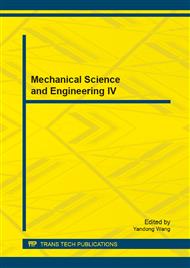p.835
p.840
p.845
p.851
p.856
p.861
p.867
p.874
p.879
Study on Power Generation Expansion Planning Model Based on CO2 Emission Reduction
Abstract:
In China, about 50% CO2 emissions from the power industry. Ways of energy conservation, reduction project and power structure adjustment can effectively reduce CO2 emissions, which is an important resort for power industry to implement low-carbon development strategy and have great influence on the power structure in China. In this paper, 0-1 integer linear generation expansion planning model based on CO2 emission reduction is first developed and applied to the power system in Heilongjiang province. The results show that the power structure dominated by thermal coal has been changed gradually to meet the requirement of operation and management of continuous development of power system. Meanwhile, measures of CO2 emission reduction taking in different periods are programmed. This study can provide reference for the decision support of CO2 emission reduction and generation expansion in power industry.
Info:
Periodical:
Pages:
856-860
DOI:
Citation:
Online since:
January 2014
Authors:
Price:
Сopyright:
© 2014 Trans Tech Publications Ltd. All Rights Reserved
Share:
Citation:


